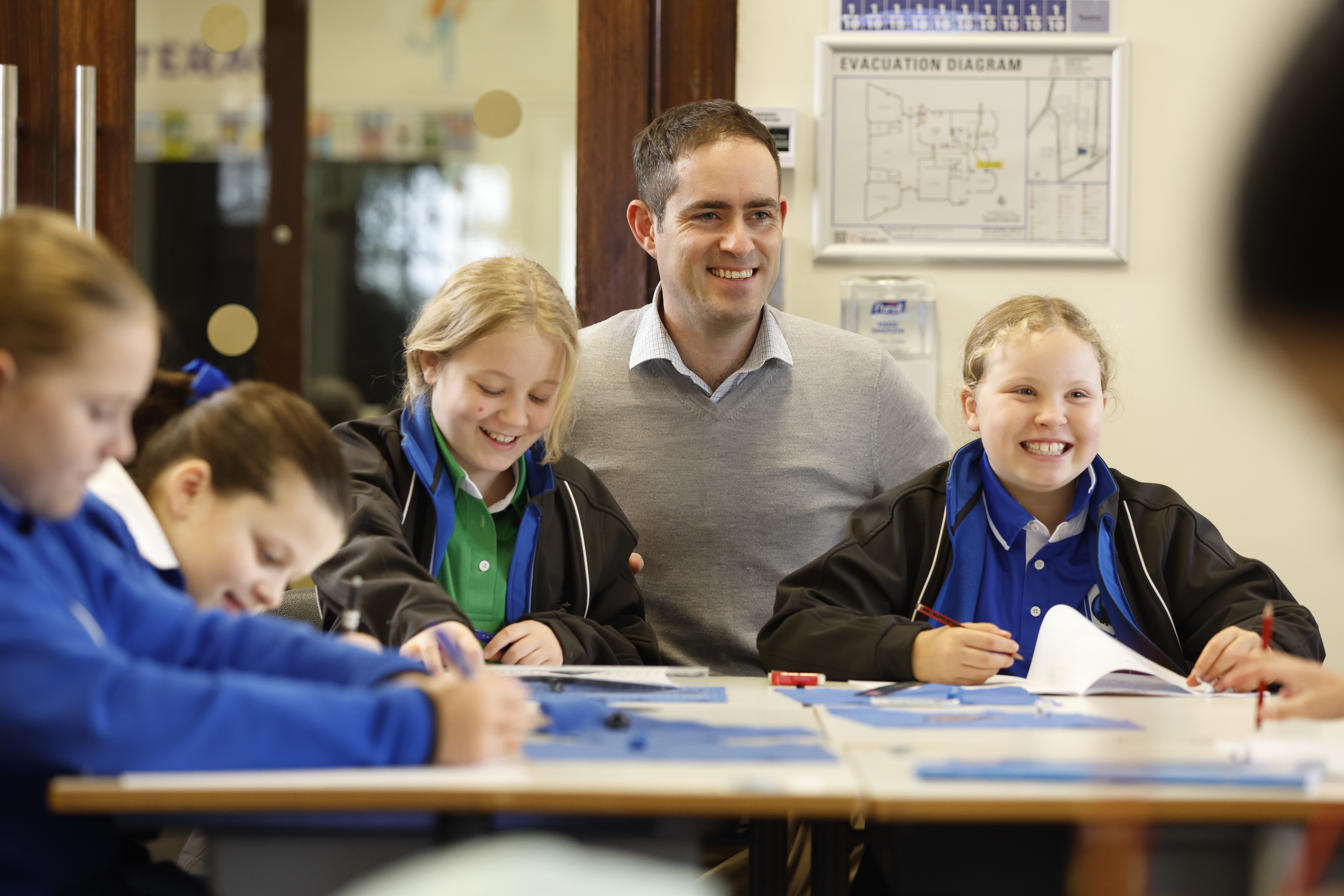We are pleased to return to many school events and activities but the disruption of the last couple of years and the ongoing presence of COVID has left some children with intense feelings of anxiety. In our staff meeting this week, one of our School Psychologists, Rebecca Sneddon, talked with Junior School teachers about strategies to support anxious students at school.
We take time to get to know students, to connect with them and understand their interests as students need to be secure and feel a sense of belonging in order to learn well. Teachers listen to students and provide opportunities for them to express and name feelings.
At difficult times, we can help students calm down by using a calm voice, saying something like, “I can see that you’re really angry. Would you like to take a little break?” or, “I can see that you’re worried about playtime. Is that because you’re unsure who to play with?”
There are many ways that we support students to be brave, and develop resilience. Picture books and other resources are used to help students learn how to recognise and calm anxious feelings. Predictable structures and routines are supportive and sometimes more flexible approaches are needed. We provide appropriate levels of risk for students so they face challenges and experience the right amount of struggle and success that follows. This helps students develop a belief that they can manage anxiety. Positive self-talk is another way that we can manage anxiety when faced with challenges by saying things like, “It’s not going to be as bad as I think” or “I know I’m going to be okay.”
It is important for students to be well prepared, have opportunities to practice, make mistakes and receive supportive reassurance as they manage anxieties.

Sensitive children have lots of big emotions and they sometimes need our help to manage them. It’s important that adults acknowledge emotions and help students to recognise how they are feeling. Helping children identify and accurately label different feelings from anxiety, anger and disappointment enables them to regulate their emotions. We can validate their feelings. It’s important not to judge emotion but just to listen calmly, acknowledge it, and validate it.
Parents could say, “It’s okay to feel anxious. I get it. I know you feel worried”. You can alleviate anxiety by not trying to fight it but simply saying, “You don’t have to do anything now. Just breathe”. Breathing triggers the relaxation response which is hard-wired in us. You can also say, “I’d like to understand what your worry is like for you. Could you describe it to me?”.
You might go for a walk together, to take time to talk and to get some physical activity to burn adrenalin and release some dopamine, the feel-good hormone. Taking time to talk about feelings, name them, and acknowledge them is the first and most important step in helping children manage their emotions and anxiety.
Mrs Helen Moore
Head of Junior School
References:
Grose, M. & Richardson, J. (2019) Anxious Kids: How children can turn their anxiety into resilience.
Samson, R. (2022) Supporting a highly sensitive child. Parenting Ideas.